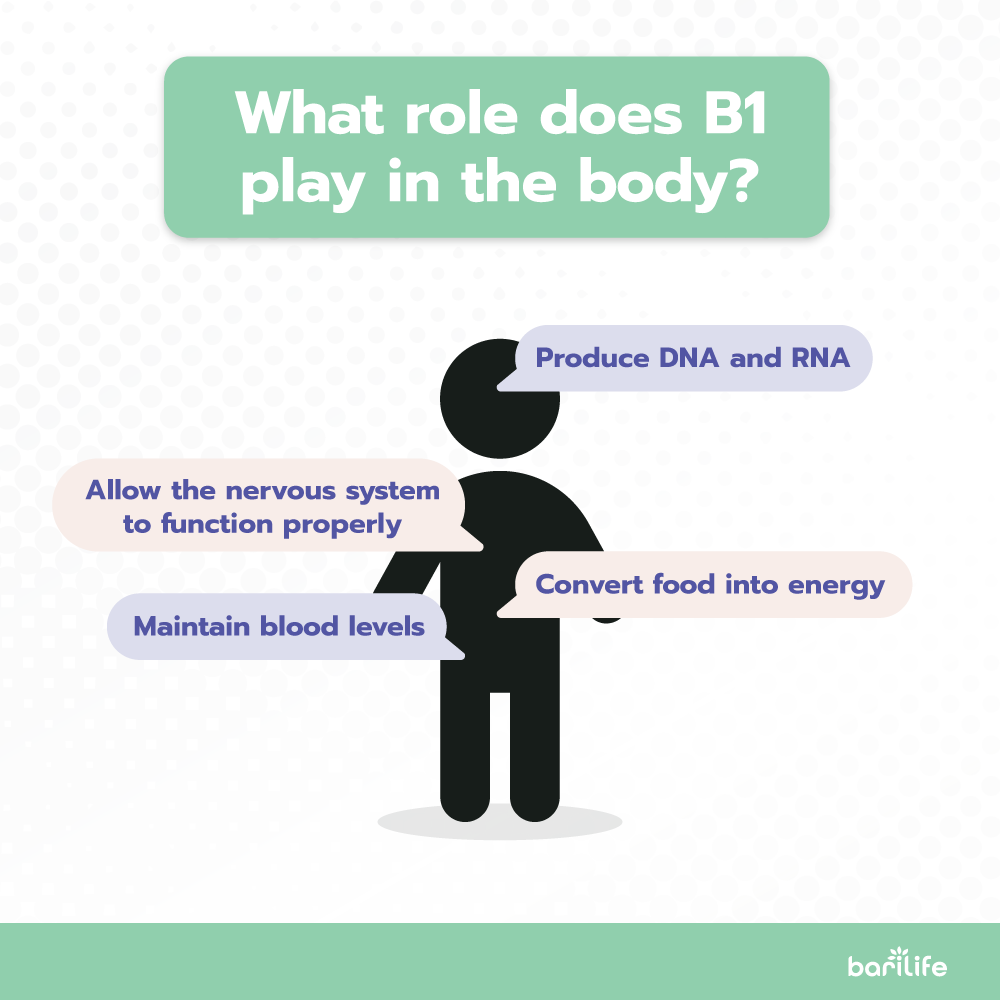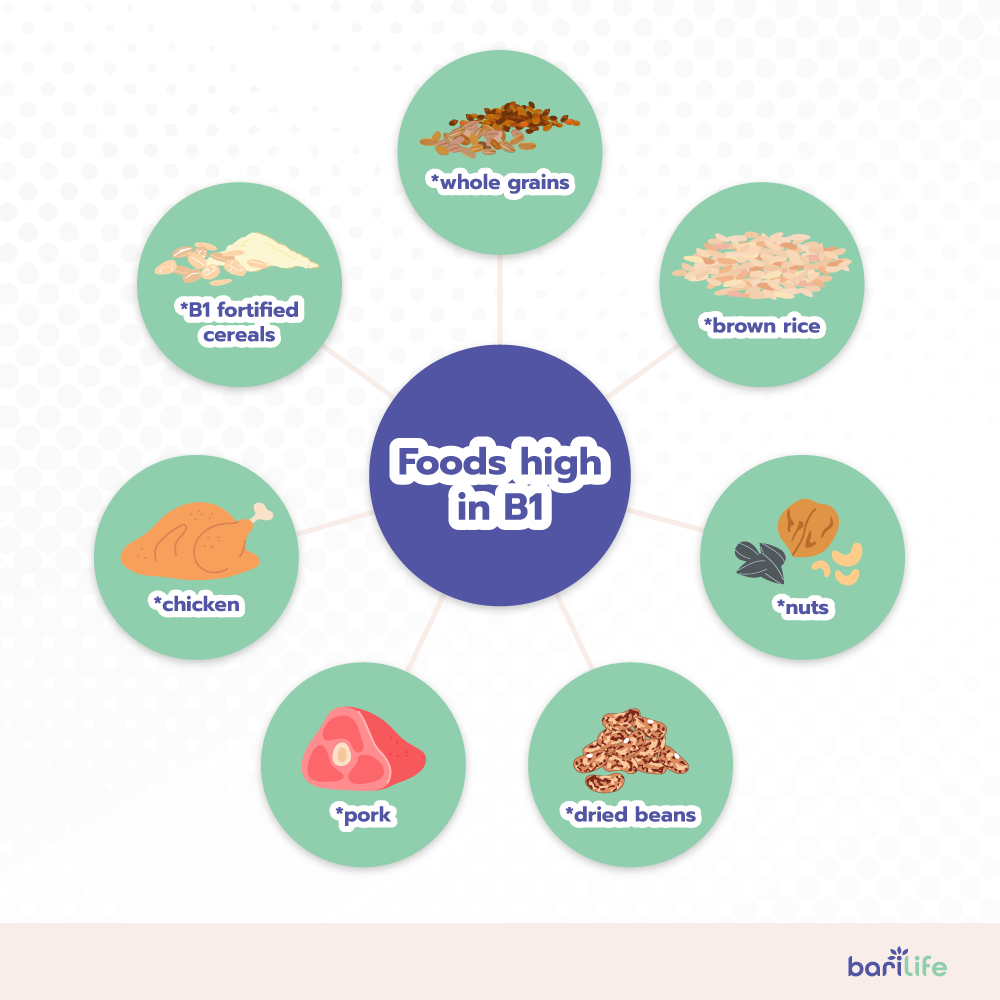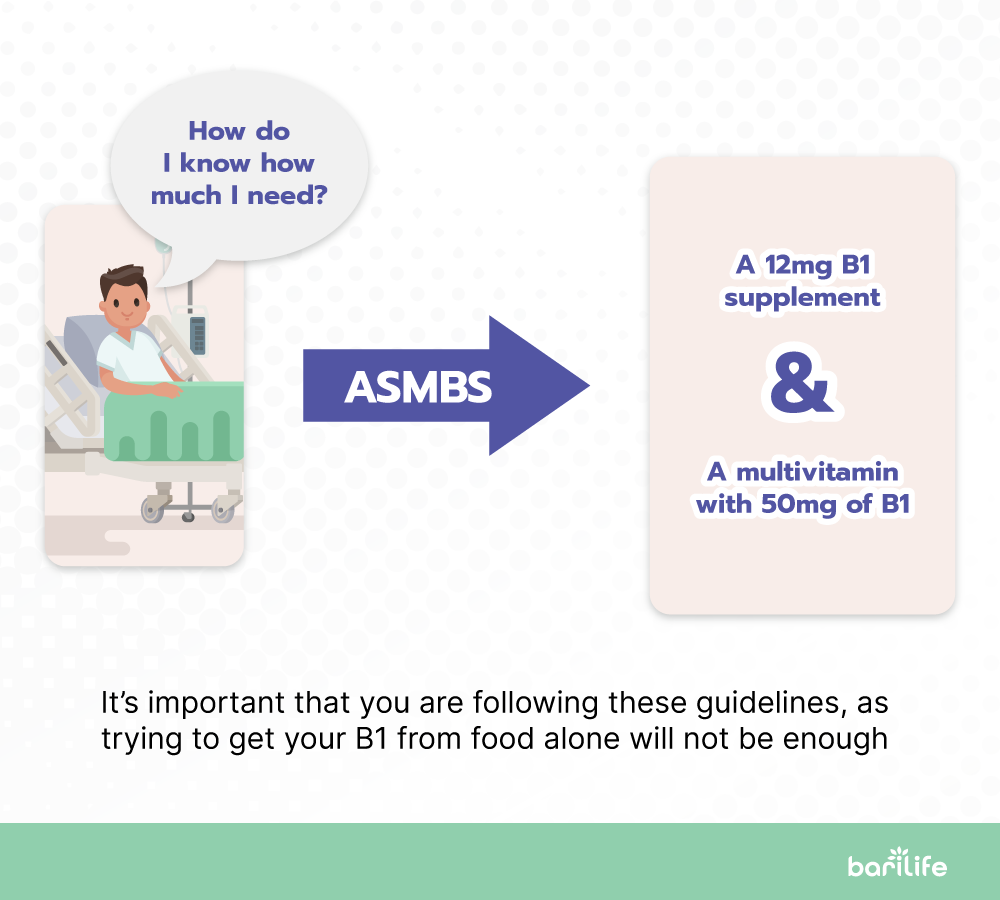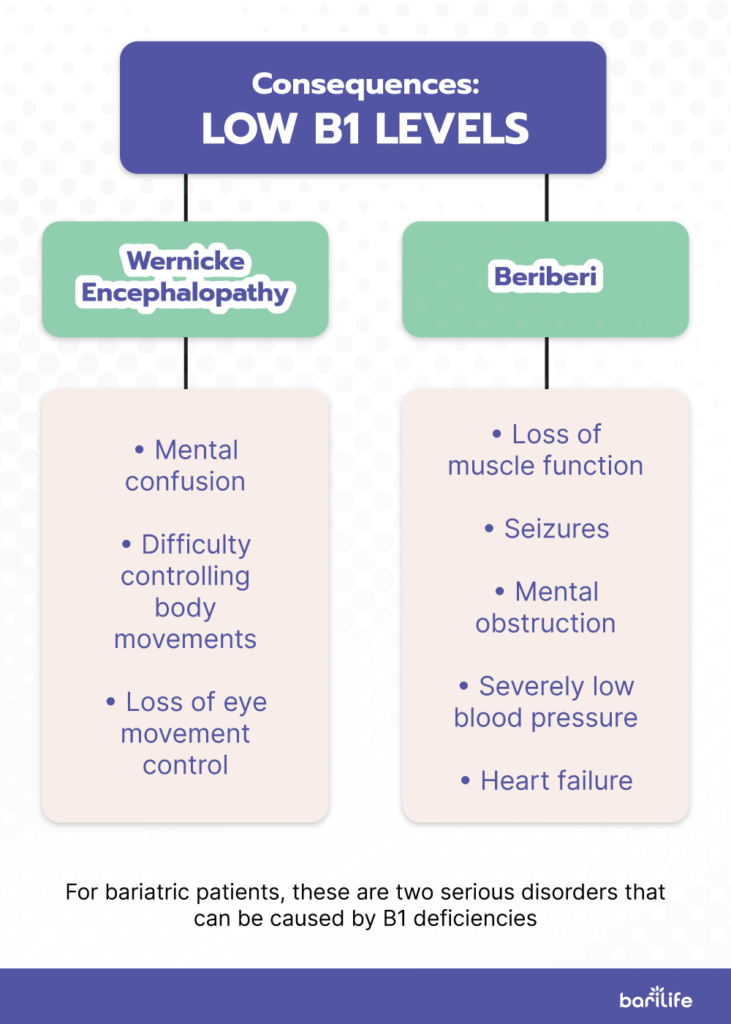You may be surprised to learn that there are actually eight vitamins that make up the B vitamin group. In this article, we’ll take a dive into Vitamin B1. You may also know Vitamin B1 by its other name, thiamin.
The role it plays in the body
Vitamin B1 is an essential vitamin needed to carry out important bodily functions. It is required in order to:
- Maintain blood levels
- Convert the food that we eat into fuel, or energy, in the body
- Allow the nervous system to function properly
- Produce DNA and RNA

Vitamin B1 is known as a water-soluble vitamin. Water-soluble vitamins are not stored in the body tissue and are depleted without regular dietary intake. That is, you must regularly consume foods with Vitamin B1, and people that have undergone weight loss surgery have to take a supplement.
Food sources of Vitamin B1 include:
- Whole grains and brown rice
- Nuts
- Dried beans and soybeans
- Pork
- Poultry
- B1 fortified cereals

Eating plenty of foods containing Vitamin B1 is a great way to try and meet the daily recommended intake. However, for some, dietary intake simply isn’t enough. Individuals who have undergone bariatric surgery are at increased risk for a deficiency, thus requiring supplementation.
This is because morbidly obese individuals often have nutritional deficiencies, to begin with. Then after undergoing surgery their food intake is restricted, which includes dietary sources of vitamins and minerals. Finally, the individual is likely not properly absorbing much of the food they are taking in, leading to further risk for deficiency.
Therefore, it is recommended that all bariatric surgery recipients supplement with Vitamin B1.
ASMBS guidelines for vitamin B1
Let’s dig a bit deeper into the true recommendations for Vitamin B1. When it comes to bariatric surgery, we turn to the experts, the American Society for Metabolic and Bariatric Surgery (ASMBS).

Currently, the ASMBS recommends that people who have undergone weight loss surgery take at least a 12mg B1 supplement and a multivitamin or B-complex supplement with 50mg of B1 in it once or twice daily. They do not mention taking in Vitamin B1 from dietary sources as this is likely not a viable option after bariatric surgery.
Signs, symptoms, and complications that can arise from becoming deficient
Thiamin or Vitamin B1 deficiency can lead to a host of issues. From a cellular level, B1 is required for energy production. This can lead to organ and cell damage. The main functional units of the brain and nervous system, neurons, require lots of energy and therefore are exceptionally vulnerable to Vitamin B1 deficiency.
One of the primary concerns with bariatric patients in terms of nutrient deficiency is Wernicke Encephalopathy. This is a neurological disorder that arises from a Vitamin B1 deficiency. Patients with this disorder can experience mental confusion, difficulty controlling body movements, and loss of eye movement control. Because of this, it is recommended that individuals undergoing bariatric surgery supplement with Vitamin B1.
Beriberi is another condition that is caused by a Vitamin B1 deficiency and is of concern to weight loss surgery recipients. This disorder can lead to loss of muscle function, seizures, mental obstruction, severely low blood pressure, and heart failure. This is easily preventable with the supplementation of Vitamin B1.

Bari Life vitamins have exactly what you need
Bari Life has a wide array of products to ensure not only the avoidance of nutrient deficiencies but also allow individuals to thrive after bariatric surgery. The Complete Bariatric Vitamin Formula meets and exceeds ASMBS guidelines all around, and contains 50mg thiamin.
Bari Life’s Just One Multivitamins make it easy for individuals to meet their basic needs with only one tablet. Its 50mg of thiamin also exceeds ASMBS recommendations of 12mg per day.
Don’t like swallowing tablets? Try one of Bari Life’s Multivitamin Powders. Meet your nutrient needs by transforming your water into a delicious beverage that comes in flavors like lemonade or watermelon.
Take it one step further and supplement with Bari Life’s Vitamin B1 100mg tablets. This will ensure that you stave off Vitamin B1 deficiency despite a decreased food intake and malabsorption, common after bariatric surgery.
Whatever you choose to keep your Vitamin B1 stores at optimal levels, Bari Life has the products and formulations that are right for you!




What are your tips and tricks to post-bariatric success?